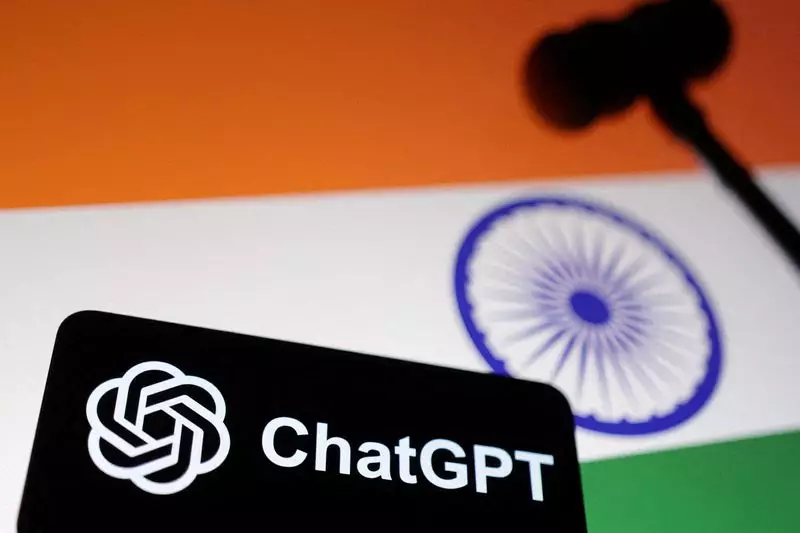In recent developments, prominent Indian media entities have initiated a significant legal challenge against OpenAI, the creator of ChatGPT, concerning allegations of improper copyright use. This lawsuit involves several high-profile players in the Indian media landscape, including billionaires Gautam Adani and Mukesh Ambani, alongside respected outlets such as the Indian Express and Hindustan Times. These publishers have expressed grave concerns over their original content being unlawfully scraped and utilized by OpenAI’s AI models without proper attribution or compensation.
The heart of the complaint revolves around a substantial fear: that the integrity and originality of their reporting are at risk of being diluted due to unregulated use of their content. Legal papers filed in a New Delhi court underscore that the media houses want to join an ongoing lawsuit initiated by the news agency ANI, which was the first to formally accuse OpenAI of breaching copyright laws last year. The Digital News Publishers Association (DNPA), representing around 20 media firms, is also part of the coalition against OpenAI. The assertion is that OpenAI’s practices pose a “clear and present danger” to the copyrights held by these publishers, claiming a deliberate act of “scraping” and misappropriating intellectual property.
This legal battle is part of a broader global discourse where authors, musicians, and various content creators are voicing concerns about how their works are utilized for the training of AI technologies. Courts around the globe are increasingly facing cases related to such copyright disputes, reflecting fears that powerful AI systems compromise the rights of original content creators. While OpenAI has consistently claimed that its methods rely on fair use of publicly available data, critics argue that the nuances of moral and economic rights in this context are overshadowed by technological advancement.
The implications of such litigation extend beyond strict legalities; they touch on the fundamental relationship between technology and traditional media. For news outlets with established infrastructures, the way forward seems to hinge on legal clarity regarding how their works are used in the digital realm. Many of these companies, such as Adani’s NDTV and Ambani’s Network18, combine both news print and digital media, making the potential fallout from this battle particularly consequential. Although the Times of India remains aloof from this legal dispute, the outcome could set a significant precedent affecting even those not involved.
As the case progresses, it will be critical to observe how courts balance technological innovation against the rights of content creators. The legal stance taken by Indian publishers against OpenAI is emblematic of a much larger global paradigm shift where the interplay between content ownership and AI utilization continues to evolve. This challenge could potentially redefine future engagements between digital technology firms and traditional media organizations, prompting a reevaluation of copyright in the age of artificial intelligence. The forthcoming legal debates could very well influence legislative frameworks, not just in India, but globally, shaping the future of how digital content is accessed, attributed, and compensated.

